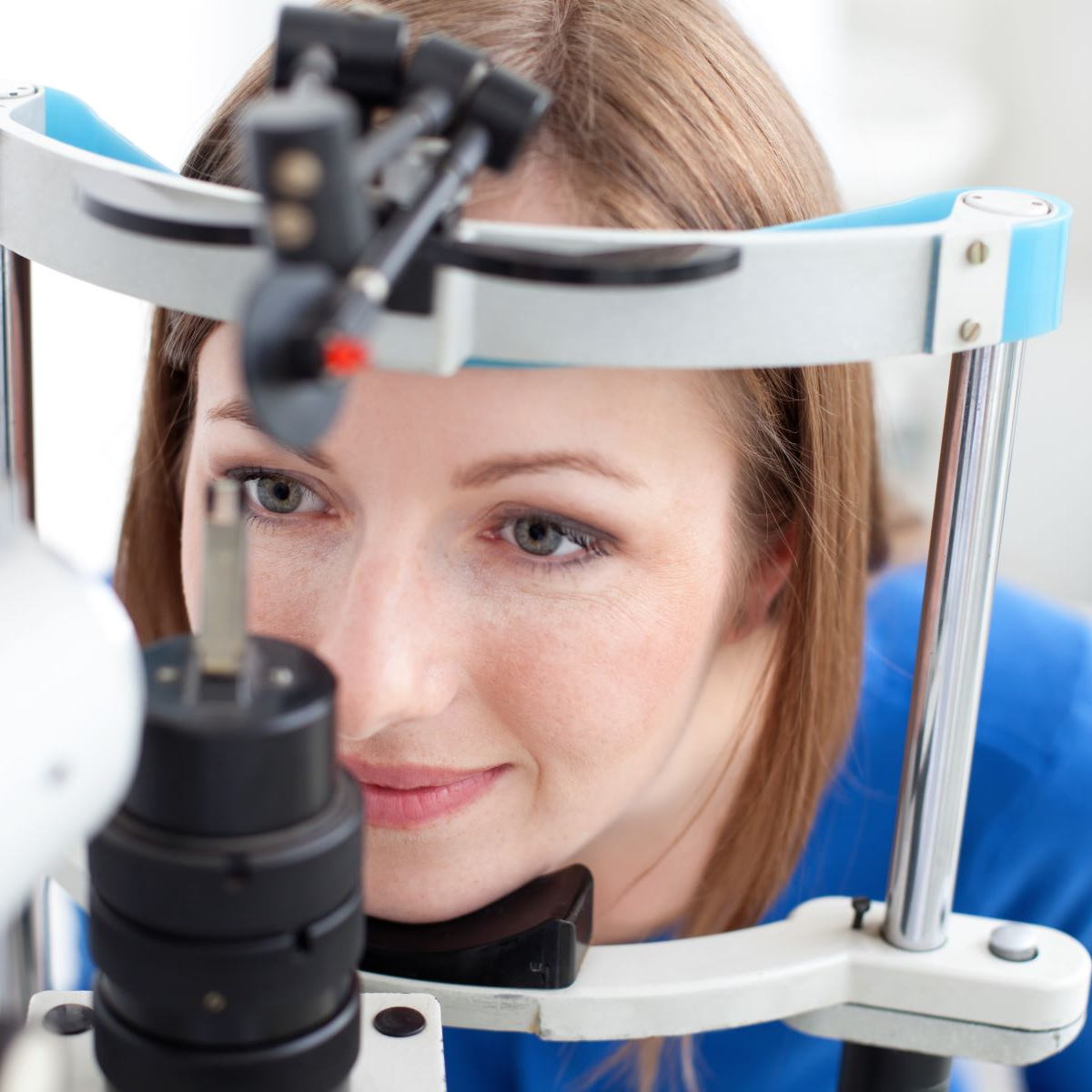Macular Degeneration
Macular Degeneration Diagnosis by Optometric Associates of Southern Maine
There are up to 11 million Americans currently suffering from age related macular degeneration, and the number of sufferers could double over the next few decades. This disease can destroy your central vision, and it’s one of the most common causes of blindness in Americans aged 60 and older. The best thing you can do to protect yourself is having regular eye exams with Optometric Associates of Southern Maine.

What Is Age Related Macular Degeneration?
If you are diagnosed with age related macular degeneration, it means that the middle of your retina – the macula – is breaking down over time. This causes vision problems and can often result in central vision loss, although peripheral vision isn’t affected. Age related macular degeneration almost always starts after age 50, and it is a common cause of vision loss in adults 60 and older.
- Dry age-related macular degeneration, the most common manifestation of the disease, occurs when soft lipid deposits called drusen build up beneath your retina. This kind of age-related macular degeneration generally starts and advances slowly.
- Wet age-related macular degeneration is the far more aggressive and damaging form. If you have wet age-related macular degeneration, your eyes develop abnormal blood vessels that can invade your retina. Often, these blood vessels leak and lead to retinal scarring.
- In most cases exudative or wet age-related macular degeneration develops after years of progressive dry age-related macular degeneration. Some, but not all cases of dry macular degeneration will progress to the wet, or exudative form.”
What Are the Early Signs of Age-related Macular Degeneration?
Often early stages of age-related macular degeneration do not cause significant symptoms, though with time patients will often notice: Increased lighting needs, blurred or hazy vision, color vision loss, and visual distortion to linear objects.
- Wet (exudative) age-related macular degeneration causes many of these symptoms within a matter of weeks vs more gradual development of these vision changes with the dry (non-exudative) form.

Is Age-related Macular Degeneration Treatable?
At this time there is no solution for macular degeneration. Vitamin supplementation, in some cases, helps to slow the rate of progression of the disorder. In the exudative form, there are treatments available (ocular injections, laser therapy) to help control the development of fluid within the macula, which helps to maintain visual function for as long as possible. However, this does not treat macular degeneration, only the complications that arise as part of the degenerative process. If you require treatment beyond frequent monitoring and education, Optometric Associates of Southern Maine can refer you to a qualified retinal disease opthalmologist for further care and management.

